Humane Society International
Region: India
Humane Society International/India’s program delivers rabies protection to communities, dogs and wildlife
Humane Society International / India
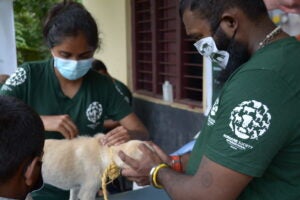
DHARWAD—Veterinarians from Humane Society International/India went door-to-door in the remote villages of Dori and Dopenatti in Dharwad, southwest India for World Rabies Day, giving free anti-rabies vaccinations to owned, yet free-ranging dogs as part of a regionalised drive to better protect both people and animals. Arriving in HSI/India’s Mobile Animal Clinic (a truck converted into a veterinary clinic on wheels) and armed with cell phones to create a medical record and track every vaccinated dog with high-tech accuracy, the vets hope to vaccinate at least 70% of the local dog population, a minimum needed for herd immunity. HSI/India teamed up with government vets from the Animal Husbandry and Veterinary Sciences Department to roll out the vaccinations.
India has around 20,000 human rabies deaths a year, accounting for nearly 40% of the worldwide death toll. Virtually all cases in India are linked to dog bites, so a three-pronged solution is vaccinating dogs, raising awareness in people on responsible canine care giving, and humanely reducing the roaming dog population. Since 2013 HSI/India has vaccinated and sterilised nearly 400,000 dogs and cats across India, and more than 1 million street dogs globally as part of its campaign to help communities reduce and care for roaming dogs and provide a humane alternative to cruel dog culls.
Dori and Dopenatti border a forest reserve and it’s not unusual for the community’s 80 or so dogs to wander into the forest. Nearly all dogs in the villages are owned by people but are entirely free-ranging. That presents the dual risk of unvaccinated dogs infecting wildlife with rabies, or acting as vectors and bringing back pathogens to the community. The rabies drive safeguards the community, wild animals around it and its dogs.
Dr. Vineeta Poojary, HSI/India’s veterinary sciences manager, says: “One of the primary drivers of deliberate cruelty faced by street or community dogs is the fear of being bitten and of contracting rabies. Roughly 20,000 people a year die of rabies in India, and most rabies cases in humans are the result of a dog bite, so by protecting the health of the dogs with a simple vaccine, we are protecting these communities at the same time. The biggest challenge though is in making communities aware of the need to vaccinate their dogs.
When we first vaccinated dogs in Dori last year, vaccination was a totally alien concept to this community and there was considerable scepticism. But now that they understand the importance of the rabies vaccine and have seen that their dogs are unharmed by it, their hesitancy has reduced significantly. Community buy-in is absolutely essential for rabies programs to work, which is why we focus so much on community engagement and education. Efforts such as these serve as the foundation to build long-term disease monitoring and surveillance programs at a district level as they enable us to collect samples from a mosaic of landscapes and species to build a robust disease profile of the region overall. Models such as this will go a long-way in ensuring animal health, community health and in-turn, planetary health.”
Globally an estimated 300 million dogs live on the streets, 35 million of them in India where they battle starvation, untreated disease and injuries, as well as direct persecution. Despite this, through community education programs such as that promoted by HSI/India, there is a growing understanding of safe and harmonious coexistence, and a growing responsibility in communities to care for the animals with whom they share their lives while at the same time holding local government agencies to account to deliver coordinated, quality veterinary care in rural and urban areas in line with the One Health approach. HSI/India’s program in the district of Dharwad, Karnataka aims to develop a model for inclusive animal protection, actively engaging community members to sustain these efforts over time.
Local resident Allah Baksh (37 years old) says: “My dog’s name is Pinto and he is 3 years old. I am a member of the grama panchayat (village administrative unit). Members of HSI/India and government doctors have come today and vaccinated almost all dogs in our village. This is a really good initiative to safeguard the health and wellness of our dogs and the people in our village. We welcome this program and have fully cooperated with them. We would also like to get our dogs sterilized in the near future.”
Local resident Bhimappa, (65 years old) says: “My dog’s name is Raja and he is 6 years old. Since this morning, the vets have been going door-to-door and vaccinating all dogs in our village. This is very beneficial to our dogs and people who live in Dori. This initiative is one of a kind and is welcome from the point of view of health of our animals.”
ENDS
Media Contacts:
- India: Shambhavi Tiwari: stiwari@hsi.org
- UK: Wendy Higgins: whiggins@hsi.org
Humane Society International / India
Reduce your consumption of animal products and pledge to #EatKind for animals, people and the planet!
Humane Society International / India

On the occasion of World Spay Day, 23 Feb. 2021, Humane Society International/India conducted free camps for sterilisation and vaccination at its Animal Birth Control Centres located in Vadodara, Dehradun and Lucknow. The camp focused on engaging community members who care for the street dogs in their areas and promoting animal birth control as an efficient remedy to manage dog population. During this camp, over 234 dogs were sterilised and 283 were vaccinated against the rabies virus.
HSI/India facilitated the camp with highly experienced veterinarians and animal welfare officers trained to use the latest humane equipment and methods.
Keren Nazareth, director of companion animals and engagement for HSI/India, said, “There are many kind and compassionate people who care for the free-roaming dogs on their streets in Vadodara, Dehradun and Lucknow. What better day than World Spay Day to help them get their community dogs sterilized and vaccinated to ensure the dog population is efficiently maintained in their respective areas. The management of the dog population will also assist in reducing instances of human-dog conflict. We encourage the people of Vadodara to come forward and bring more street dogs to our facilities for sterilization and vaccinations through the year.”
HSI/India has been implementing a mass sterilization and anti-rabies vaccination project in Dehradun and Nainital (Uttarakhand), Vadodara (Gujarat) and Lucknow (Uttar Pradesh).Since its work began in 2013 in India, it has sterilized and vaccinated over 150,000 dogs across many cities of India.
ENDS
Media Contact: Uma Biswas: +91-8758807223; ubiswas@hsi.org
Humane Society International / India
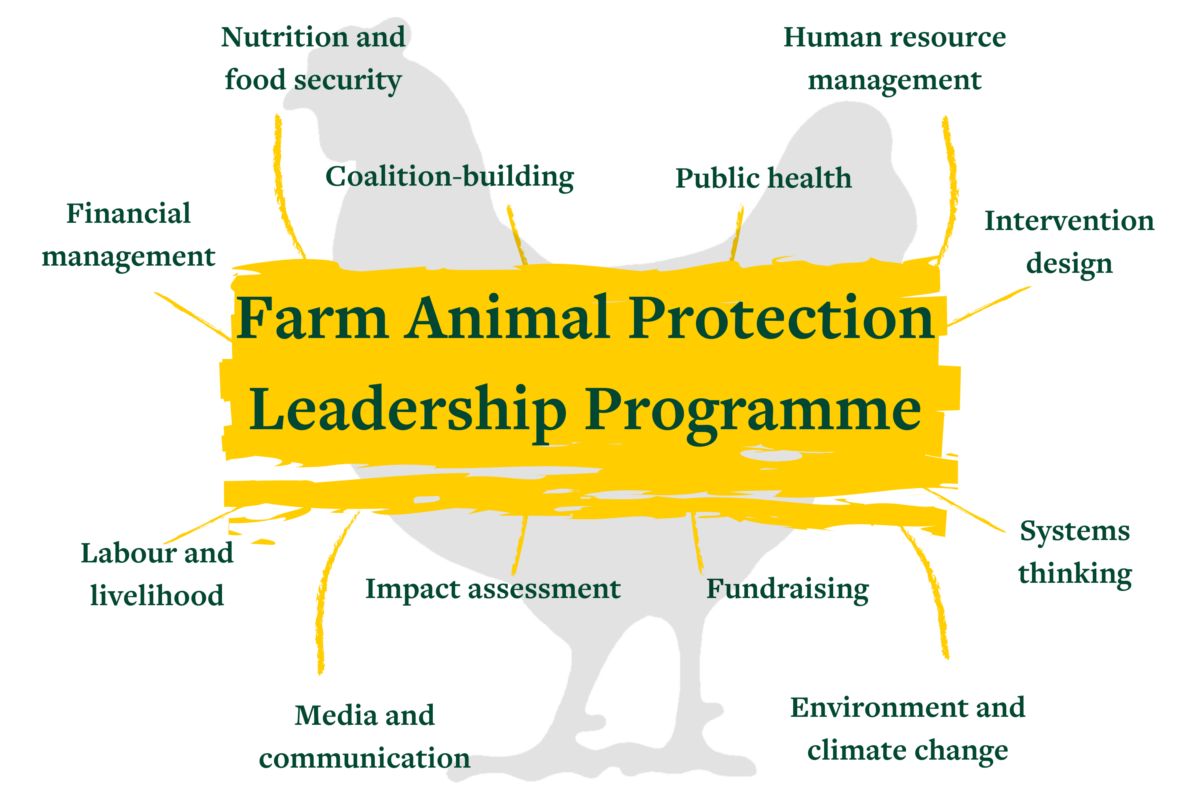 Farm animal protection is an unexplored sector, and is seldom seen as a long-term career option. The insufficient interest and support from premier public and private institutions has created a vast talent pool gap. What is often overlooked is that the maximum suffering of and impact on animals and people is centred around farm animal issues. While it lies at the intersection of environment protection, climate change mitigation, nutrition, food and water security, public health, livelihoods and labour welfare, it continues to work in silos.
Farm animal protection is an unexplored sector, and is seldom seen as a long-term career option. The insufficient interest and support from premier public and private institutions has created a vast talent pool gap. What is often overlooked is that the maximum suffering of and impact on animals and people is centred around farm animal issues. While it lies at the intersection of environment protection, climate change mitigation, nutrition, food and water security, public health, livelihoods and labour welfare, it continues to work in silos.
The primary objective of the Farm Animal Protection Leadership Programme is to serve as a framework to strengthen the Indian farm animal protection movement and bring together its allies for a sustainable future.
Vision: Our vision is to create united, talented and skilled leaders who will transform India in its endeavour to create a compassionate and sustainable future.
Mission: Our mission is to enable farm animal protection through values-aligned leadership in the sector.
Participants will be able to:
- Learn from the foremost global leadership and farm animal protection experts
- Network with the brightest peers in the farm animal movement
- Build coalitions with allied movements
- Explore purpose-driven high-impact career opportunities
Who should apply
We are seeking participants who are passionate, visionary individuals with a clear desire to transform the lives of farm animals, people and our planet. We are looking for leaders who will bring integrity, values and a collaborative spirit into advocacy for farm animals.
We invite those who wish to develop the skills to design, run and measure impactful programmes for farm animals, who will bring new ideas to pressing challenges we face, and who have strong growth potential and the propensity for creating a vibrant movement for farm animals.
Professionals, part-time and full-time employees, consultants, interns and volunteers from the following fields may apply for the programme:
- Animal protection
- Environment protection and climate change mitigation
- Labour welfare
- Food and nutrition security, and public health
Deadlines and how to apply
- Opening of applications: 1 February 2021
- Closing of applications: 21 February 2021
- Announcement of final list of (30) selected participants: 20 March 2021
- Commencement of programme: 9 April 2021
- Duration of programme: 6 months + internship/project
- Fee: The cost of the programme, if invited to participate, is INR 20000, payable at https://supporthsi.in/
To apply: Please download and fill out this application form and send it by 11:59 pm, 21 February 2021 to farmanimalleadership@hsi.org
Faculty
Read bios of our many expert speakers.
Frequently asked questions
Read our frequently asked questions, or contact us at farmanimalleadership@hsi.org if you don’t see the answer you need.
Humane Society International / India
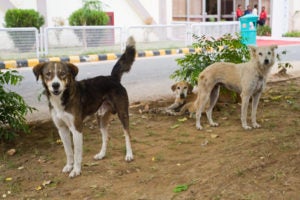
NAINITAL—A survey carried out by Humane Society International/India and Nagar Palika Parishad, Nainital to estimate the sterilized population of street dogs in Nainital in June 2020 and August 2020 shows that 97.91% of street dogs are sterilized and vaccinated across all 15 wards of the city.
This survey follows a three-year Animal Birth Control program by HSI/India which began in Nainital in April 2017. The main objectives of the program were to control the street dog population, reduce human-dog conflicts and improve the welfare of street dogs. Till now, of the 1,567 dogs, there are 1,032 female dogs and 535 male dogs who have been successfully sterilized and vaccinated.
Dr. Amit Chaudhari, HSI/India’s senior program manager for monitoring and evaluation, says, “Nainital is slightly different for dog population dynamics as the owned dog population is very high. Almost 50% of dog owners allow their dogs to roam on the street. We have recommended to the local administration that they undertake activities to register and increase engagement with pet owners to create a more effective and responsible eco-system, which will not contribute to an increase in street dogs again.”
Key survey insights and recommendations:
- A Knowledge, Attitudes and Practice survey across Nainital was conducted in July 2017 and showed that there was a 2,155 strong pet dog population of which 42.6% were sterilized.
- In October 2018 during the breeding season, 6% of female dogs were lactating, which declined to 3.4% in October 2019. During non-breeding season in May, the percentage of lactating females reduced significantly from 6.7% in May 2017 to 1.5% in June 2020.
- The estimated owned dog population is high compared to the estimated free roaming dog population.
- HSI/India recommends sterilization to private dogs and establishment of an effective pet registration system for Nainital which would make sterilization and vaccination mandatory for owned dogs and provide a management tool for the municipality.
ENDS
Media Contact: Uma Biswas: ubiswas@hsi.org; +91-8758807223
Humane Society International / India
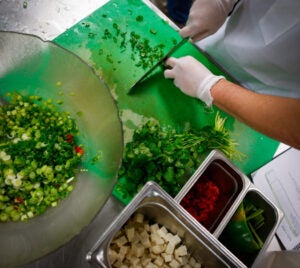
Dehradun—Café Maya A Culture, a Dehradun-based café, has teamed up with Humane Society International India to join the global movement towards serving more plant-based, sustainable food, and has committed to replace 30% of all their meat, dairy and egg-based menu items with delicious plant-based dishes by 2022. Further, the café is also increasing their current menu to include all-new plant-based options to their menu, including dishes made with tofu, vegan whipped cream, coconut milk and plant-based meat. In responding to consumer demand for more plant-based options, Café Maya A Culture’s menu changes will impact more than 1 lakh meals per year.
Consumers across the globe are increasingly swapping out animal products for plant-based ones, and responsible food businesses and institutions are responding to this opportunity to better cater to this vibrant and growing market. Consumer demand for this change has been driven by the mounting evidence of links between the intensive rearing of animals on factory farms to produce meat, dairy and eggs and its negative impacts on the environment, public health and animal welfare. Research indicates that animal agriculture accounts for an estimated 14–16% of all man-made greenhouse gas emissions, which is about the same as all transportation combined. Livestock production is also a highly inefficient use of scarce land and water, a principal driver of deforestation, habitat destruction and species extinction.
Avantika Chaudhary, owner of Maya A Culture, said, “Maya A Culture is committed to introducing animal welfare standards in its food supply chain. By changing the menu, we will be able to produce healthy food that is good for animals, our health and environment too”
Further, numerous studies indicate that a diet rich in plant-based foods can help improve health, and that people who eat fewer animal products have lower rates of high blood pressure, diabetes, arthritis and certain types of cancer. By choosing to eat more plant-based foods, we can ease the enormous burden our current consumption habits have on the environment, improve our health and reduce the immense suffering of millions of animals.
Humane Society International/India’s Managing Director Alokparna Sengupta said, “The Café’s laudable decision to commit to replace 30% of their animal-based products with plant-based options is a visionary choice not only for the future of how we eat but also for the future of this planet. We are grateful to have worked with Maya A Culture and hope that other cafés in the city and in the country will soon follow suit. Replacing just 30% of their animal-based meals with plant-based options impacts hundreds of thousands of animals and enables customers to make food choices that are better for animals, their health and the planet.”
Across the globe, HSI partners with food businesses, schools, colleges and other institutions to put more plants on plates. By working with institutions to design exciting plant-based menus, provide plant-based culinary trainings and other promotional activities, HSI is paving the way for more humane, sustainable eating.
For support in the development of animal welfare policies in your supply or procurement chains, to request a plant-based culinary training or to adopt our Meatless Monday program, contact HSI/India at +91 9632890083 or rrao@hsi.org
Reference in this article to any specific commercial product or service, or the use of any brand, trade, firm or corporation name is for the information of the public and does not constitute or imply endorsement, recommendation or approval by Humane Society International or its affiliates of the product or service, or its producer or provider.
ENDS
Media contact: Shambhavi Tiwari, +91 8879834125, stiwari@hsi.org
Department of Animal Husbandry and Veterinary Services along with Karnataka Forest Department executed the program in collaboration with Humane Society International India in an effort to reduce zoonotic disease transmission
Humane Society International / India
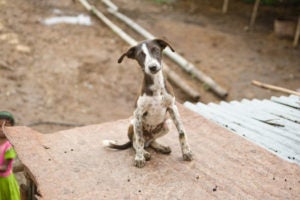
DHARWAD—On the occasion of World Dog Day, the Department of Animal Husbandry and Veterinary Services (AH&VS) at Dharwad, Dharwad division of the Karnataka Forest Department and Humane Society International/India (HSI/India), an animal protection organisation, joined hands to conduct a vaccination camp to vaccinate dogs in Dopenatti village.
With the village bordering a reserve forest, chances of zoonotic disease transmission from owned and feral dogs to wild canids is relatively high. Periodic vaccination drives against common diseases such as rabies is vital for the health and well-being of the dogs themselves, people around them as well as wild animals in the region. As a part of this camp, dogs were vaccinated against rabies and a host of other commonly seen diseases such as canine distemper, parvoviral enteritis and leptospirosis.
Dr Vineeta Poojary, program manager of Veterinary Sciences, HSI/India said: “The concept of regularly vaccinating your companion animals is often lacking in most parts of the country. While vaccination of livestock is still done as they are production animals, dogs are often ignored – especially in rural areas. It is a known fact that dogs do venture into protected areas and often come in conflict and contact with wild animals. While only vaccinating them will not resolve the issue, it is definitely an important tool to achieve it. We are very grateful to the respective government agencies for collaborating with us for the same”
A recent study based on camera trapping data showed more dogs than tigers in core areas of 17 tiger reserves across the country. Experts believe that presence of dogs in a forest landscape leads to competition between wild animal and domestic dogs for resources. Further, a study conducted in 2017 demonstrated that domestic dogs contributed to 11 vertebrate extinctions and pose a risk to at least 188 threatened species worldwide.
Shri Yashpal Kshirsagar IFS, Deputy Conservator of Forests, Dharwad division said: “While we recognize the threats posed by proximity between domestic animals and wildlife in terms of disease transmission, we would like to explore sustainable and humane solutions to this conflict. We are happy that the Department of Animal Husbandry and Veterinary Services has come forward to join hands with us for this initiative. We would also like to thank Humane Society International/India for coordinating and helping execute this camp with their resources and expertise.”
Dr Parameshwar Naik, Deputy Director, AH&VS, Dharwad said: “Disease surveillance, monitoring and prevention of zoonotic diseases is the need of the hour as demonstrated by the on-going COVID-19 pandemic. In this regard, we are happy to collaborate with the Karnataka Forest Department and Humane Society International/India to conduct this mass vaccination camp. To further aid in management of conflict between domestic dogs and wild animals, more stringent policies on responsible pet ownership is required.”
HSI/India in Dharwad and Gadag districts has been working over the last two years in building capacity of various government agencies on animal welfare, helping animals in times of disasters and providing training to several interested individuals in the district on first-aid for animals in distress.
***Keeping with the precautions that one needs to be mindful of with the COVID 19 pandemic, the organizers will be distributing face masks to all attendees. Further precautions such as physical distancing norms and sanitization of the premises and staff/volunteers will be done at regular intervals.
ENDS
Media Contact: Shambhavi Tiwari; stiwari@hsi.org; +91 8879834125
Institute commits to developing and implementing animal welfare standards to meet growing demand for compassionate cuisine
Humane Society International / India

AMBALA—Ambala Institute of Hotel Management has committed to incorporate animal welfare-friendly practices in its operations by 2022, following a two-day culinary workshop organized by Humane Society International/India. The institute serves 43,000 meals annually, and will replace 30% of all meat, dairy and egg-based menu items with plant-based options, and it will procure its annual supply of 20,000 eggs exclusively from cage-free producers. With this move, AIHM joins a growing number of global food businesses and institutions that are making the switch to more ethical and sustainable food products.
Humane Society International/India’s Managing Director Alokparna Sengupta said, “College campuses are an important place to provide students with nutritious meals. This move is particularly relevant for culinary students, who will be better prepared for the growing market of consumers and businesses that recognize the future of plant-based foods and higher animal welfare. Students who have the opportunity to learn about and cultivate first-hand experience with these ingredients will no doubt be better prepared for the future. We are excited to witness this decision, and we encourage other institutes to follow.”
AIHM is a hotel management institute under the National Council for Hotel Management & Catering Technology, Ministry of Tourism, Government of India. Experienced hoteliers and entrepreneurs set up the institute to bridge the gap between education, training and personnel development for the industry. It trains up to 100 students a year in hospitality and hotel administration, craftsmanship course in food production and pastry-making, Skill Development Programme HSR (Hunar Se Rozgar) and other skills. AIHM is the first institute of its kind to adopt animal welfare policies. It will also encourage other hotel management institutes under the National Council to take such decision.
Yaashik Aggarwal, director of AIHM, said, “Animals have been degraded for a very long time just like natural resources. We see cruelty and torture all around us every day and at every instance and there is a little that every individual can do. We try to do the maximum that we can but it is still not enough. So this is a small step by Ambala Institute of Hotel Management for a better tomorrow for people, animals and sustainable coexistence.”
HSI/India conducts plant-based awareness culinary programs in schools and colleges throughout the country to promote more climate friendly and humane consumption patterns in India. HSI has trained over 500 institutional chefs around the world on plant-based cooking, and has assisted hundreds of food businesses in developing and implementing cage free egg policies in their food supply chains.
Consumers around the world are fast recognizing the many benefits of moving away from animal based diets. A plant-based diet can have a significantly smaller environmental impact, as animals’ agriculture is resource intensive, requiring significantly more water and land than farming vegetables and grains that can directly feed people. Moreover, animal agriculture is a tremendous contributor to climate change, accounting for an estimated 14-16% of all man-made greenhouse gas emissions, which is about the same as all transportation combined. Numerous studies indicate that a diet rich in plant-based foods can help improve health, and that people who eat fewer animal products have lower rates of obesity, high blood pressure, diabetes, arthritis and certain types of cancer.
Finally, by shifting our current consumption habits, we can reduce the immense suffering of millions of animals—whether by leaving animal products off your plate entirely or by choosing products from higher welfare systems (such as cage-free eggs). The majority of laying hens spend their entire lives in cages so small that they are unable to spread their wings, turn around or engage in any of their natural behaviors. Cage-free production systems generally offer hens higher levels of welfare, enabling them to express more of these behaviors, including moving around, laying eggs in nests, perching and fully spreading their wings.
For support in the development of animal welfare policies in your supply or procurement chains, to request a plant-based culinary training or to adopt our Meatless Monday program, contact HSI/India at +91 9632890083 or rrao@hsi.org
Reference in this article to any specific commercial product or service, or the use of any brand, trade, firm or corporation name is for the information of the public and does not constitute or imply endorsement, recommendation or approval by Humane Society International or its affiliates of the product or service, or its producer or provider.
ENDS
Media contact: Shambhavi Tiwari, +91 8879834125, stiwari@hsi.org
Humane Society International/India lauds Indian Pharmacopoeia Commission on landmark decision to abandon obsolete animal test
Humane Society International / India
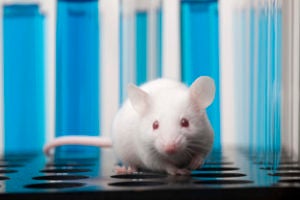
NEW DELHI—A controversial and obsolete animal test for batch testing human vaccines has been abolished by the Indian Pharmacopoeia Commission in what is being hailed by Humane Society International/India as a landmark decision. Deletion of the Abnormal Toxicity Test from the Indian Pharmacopoeia will spare the lives of hundreds of thousands of animals nationwide every year. The decision was announced following the draft notification published for public consultation in May. HSI/India, a member of the IPC’s Expert Committee has been in dialogue with the IPC, vaccine manufacturers and scientists to remove ATT which is in accordance with the World Health Organisation guidelines which deleted the test in November 2018.
Alokparna Sengupta, managing director of HSI/India, said: “This is a landmark decision by the Ministry of Health and Family Welfare and the IPC, and represents a progressive stride in joining some of the most scientifically advanced countries in the world that have also deleted the obsolete Abnormal Toxicity Test. This is the first vital step towards consigning animal testing for vaccines to the history books, and we hope that an equally forward-thinking vision will be applied to similarly obsolete animal tests for veterinary vaccines too.
“As a global player of ever-growing significance in worldwide vaccine manufacturing, India needs to be at the forefront of innovation and compliance with the highest international standards. As well as being inhumane, animal tests are increasingly recognized to be poor at replicating results in human, prone to excessive variability, and highly costly.”
The ATT was originally developed in the 1950s to detect external contaminants in vaccines and has remained the de facto gold standard despite mounting scientific evidence questioning its reliability and value. The introduction of “good manufacturing practices” and the use of stringent quality control measures, now mean that omission the test does not compromise the safety of the products. The IPC has previously granted waivers on the ATT for companies able to demonstrate good manufacturing practices and adequate consistency of production, but now the test will be completely deleted.
With support from the Bill & Melinda Gates Foundation, Humane Society International is working across the globe with vaccine safety authorities, industry and stakeholders in an effort to eliminate or replace redundant animal testing from regulations for human and veterinary products. HSI has facilitated extensive stakeholder engagement in India to help bring about this monumental step sparing countless animal lives while ensuring vaccine safety and availability.
ENDS
Media Contact: Shambhavi Tiwari, stiwari@hsi.org, +918879834125
